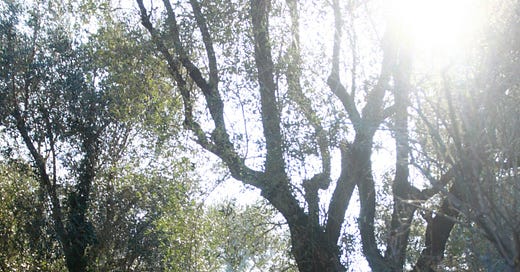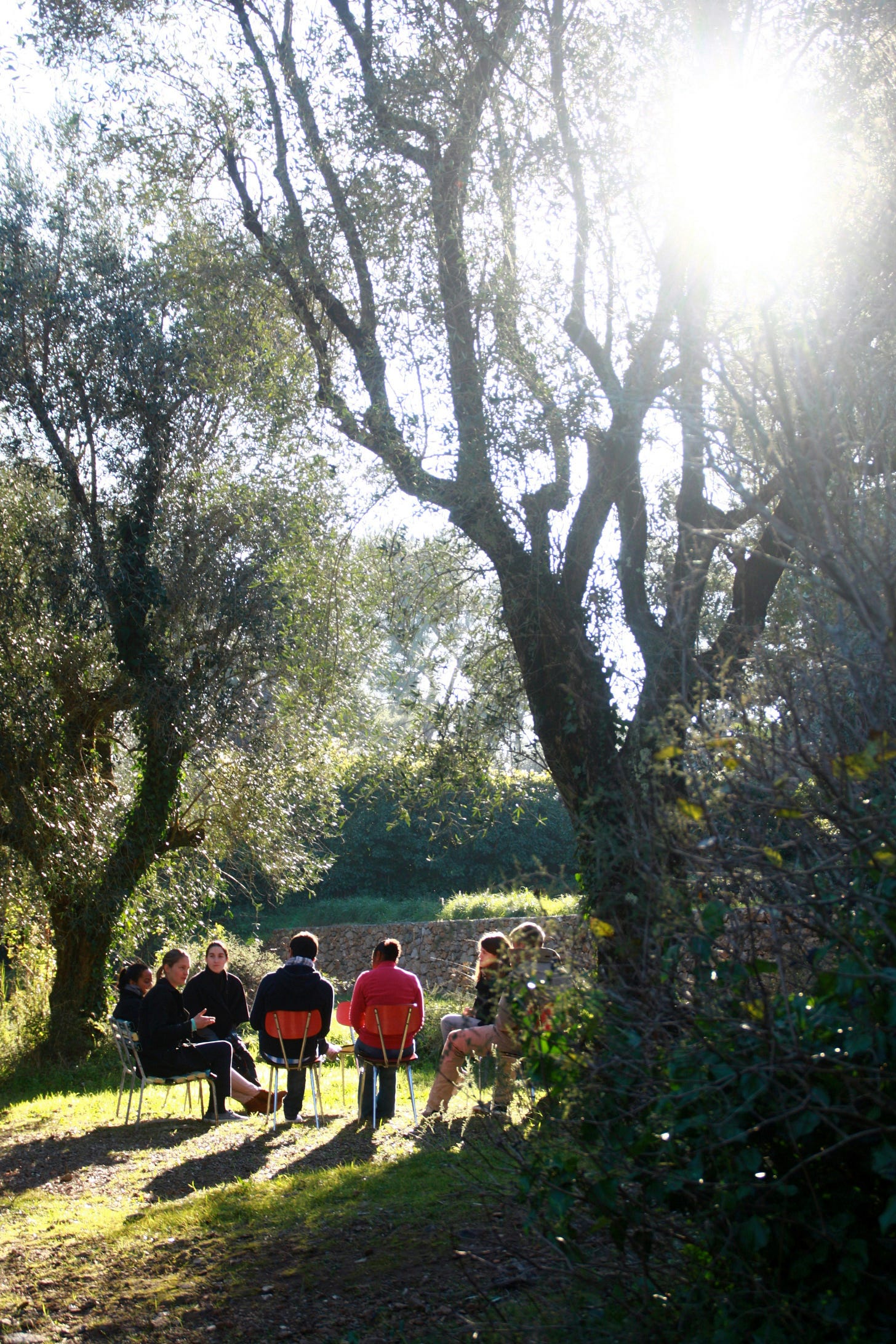“I can barely do life basics, never mind any curveballs or meaningful work.”
“Just imagine what I could do if I had the spoons!”
“Can you imagine if we had the support we need? Watch out world!”
These are quotes from three absolutely brilliant, innovative autistic women I know.
I keep meeting amazing autistics who can’t contribute their much needed perspectives and skills where they are needed because they’re repeatedly in autistic burnout or don’t have the support to outsource boring life tasks and other struggles so they have energy for their work.
I took on my dream job, one I was uniquely qualified for, as national lead for a newly establishing equity coalition. I knew that realistically, it wasn’t the part time job it was advertised as, but the initiative had decent long term funding and the steering group was progressive so I figured if I could make it through the first year we could build a team to share the load. Sounded reasonable hey?
I suspected I would go into burnout if I accepted the role but thought I’d just take a month off and recover over summer. I was missing a vital piece of information. Which was just how debilitating severe autistic burnout can be. Especially for a multiply neurodivergent solo mama navigating life with PTSD and health differences commonly co-occurring to wild brained folks. Reader, it was not a month’s recovery time!
Not even close. I got the recovery time wrong by YEARS.
And it’s looking a lot like my burnout specialist professionals were right, that I may never regain my previous cognitive powers and stamina.
We pay a high price for getting it wrong.
Which is why those of us who’ve been in severe autistic burnout, when resuming commitments out in the world again as we heal, live with a lurking terror of getting it wrong again.
I hear over and over from brilliant minds in our autistic communities that they can ‘just’ manage the day-to-day life stuff but as soon as there are curveballs like health appointments, a car broken down, a sick parent, a kid in crisis, the wheels fall off and the struggle kicks in.
It can take a massive amount of energy to keep the plates of life spinning, often there is none left for work or advocacy. Which in turn, adds weight with the lack of meaningful work contributing to burnout.
Late diagnosed folks are often dealing with the cumulative impact of multiple burnouts over our lifetimes. Not only does this have us at high risk of a speed slide into burnout again but the stress of sensory injurious environments and playing the game of life on permanent hard mode takes its toll on our bodies and minds. Google up autistic and otherwise neurodivergent statistics on health outcomes, unaliving and life expectancies. It’s not good.
I want to share a post from the fabulous Rosie Weldon’s facebook page:
An autistic wellbeing advocate’s response to Rosie’s post:
“I definitely feel precarious all the time. It's only those very close to me that see all the strategy and support going on.”
It’s exhausting to feel like life is so precariously piled up. Which is, in itself, another source of chronic stress to add to the mix.
I’ve talked about how most autistic, ADHDers and multiply neurodivergent folks have hyperconnected nervous systems, with all the creativity, innovation, pattern spotting, out-of-the-box joining of dots and exhaustion that seems to come along for the ride. A kind of brilliance tax? Hmmm.
There is an intersectional pile up of whatever the opposite of privilege is, like financial disadvantagement, other disabilities in the mix, having mental health wobbles, being a parent, being a solo parent, being queer, trans or brown for example. Or all of the above. Each adds to the exponential explosion of spoons needed to navigate daily life.
One of the explorations I offer in my coaching practice is mapping all our commitments and demands in different categories, parenting, family, friends, work, sports, creative, home maintenance, housework, volunteering, pets - all the things then and breaking it down further into the executive functioning steps of each. Then we look over and note down whether a thing lights us up/feeds us, takes a lot of spoons/weighs us down or his kinda meh/has to be done but neutral.
Too much of the weight and obligatory ‘has-to-be-done’ stuff without enough of what lights us up, adds up to autistic or otherwise neurodivergent burnout. Or depression.
Many neurodivergent people are hugely challenged with life admin or any sort of bureaucracy like banking, tax returns, navigating support services and medical environments. I have a foot in that camp. Some people simply aren’t able to.
Doing tax returns can feel daunting or literally like a shadowy block in my mind that I can’t get past or go around. It’s the same feeling I used to get in maths class as a child. It’s endlessly fascinating to me that I can manage massive budgets for work, but tending my personal finances takes a lot. Some things I CAN do but I get easily dysregulated or frustrated and it can take me a long time. It just doesn’t make sense for me to do some admin stuff when it takes hours, days or weeks in a foul mood when someone who is good at it will breeze through and quite enjoy it.
I jokingly call myself ‘the world’s worst business person’ but that’s not actually true. I’m excellent at identifying needs and gaps in markets, relationship building, building teams, finding sustainable funding, collaboration, programme and product design and all the start up phase stuff. I just get bored easily and the nuts and bolts of repetitive administration has my brain want to either curl up and perish or blow things up.
My talents lie elsewhere. I’m a systems thinking innovator. I create content and streamline systems brilliantly but would rather stab myself in the eye with a blunt stick that consistently maintain them or do repetitive administrative work and struggle to do things like oh, ahem, eat and drink water.
This is the great thing about individualised funding (IF). As well as supporting some folks to eat, shower and live in a clean home, having support to scaffold where we fall down & fill the gaps with vital services like meal prepping and appointment making, can allow us to take on fulfilling paid work, contributing to the world with our strengths. Small supports can make a huge difference. Unexpected curveballs ditto, just not in such a good way.
One of the questions in the END Framework (Exploring Neurodivergence Framework) I developed and use in my neurodivergent specialist coaching practice is about whether the person is known for excellence and puts in 120% at work being super organised, but is in a complete muddle at home. Nothing is wrong except the expectations, but again, this can be fine if the person can outsource cleaning, meals, hire a VA or lives in a partnership, family or community setting. Not so good if the autistic person lives solo, like so many of us do.
Quite a number of neurodivergent folks who identify as disabled have incredible talents, insight, skills and experience but are terrible capitalists and don’t know how to monetise.
I meet young people through my coaching practice who say they don’t need strategies and tools because they’re ‘mostly muddling along fine.’ Thing is, their current lives are simple. They’re mostly single, no child/ren and are studying or working part time but want to partner up, have career goals and have children, travel, continue to play sport and/or expand their art practice. In other words, they are doing okay managing daily life at the moment but planning to create more complexity in their lives where the demands on them will grow.
It sucks to be limited socially, in employment and financially but we have to live the unique life that works for us. It’s not really a choice when the threat of big bad burnout is always just over the horizon.
So, what to do?
A few of us share various versions of the dream of a remote admin / support hub supporting neurodivergent advocates, educators, entrepreneurs and content creators. Allowing the time and space for our brilliance to go forth into the world by taking the weight of the tasks that get in our way:
There would be other autistic or otherwise neurodivergent folks to brainstorm with and celebrate successes.
There would be paid neuro-informed admin support to send reminders, handle invoicing, project management tasks and the icky stuff.
There would be built in solidarity with the group sharing ideas, collaborations might emerge, there would be people with a range of experience and skills to consult with and a shared understanding of neurodivergence.
And a pool of talent to outsource work to and cover folks in times of shutdown and burnout.
I suspect that this sort of hub of freelance autistic professionals anchored by a paid admin person will be a key factor in folks NOT going into burnout. I crunched a few numbers and with admin and support costs built into the business plan, I think it can work financially.
I really want this.
Part of the blessing of being autistic+ with ADHD in the mix is the passionate proliferation of ideas, a talent for spotting gaps of needed work, combined with a fierce sense of service and mission to work toward a more equitable world. But not having time and space and spoons and support to actually do the things is infuriating.
Like many of us, I’m not great at the admin side of freelance life but permanent office-based work isn’t a sustainable option.
Stuck between a rock and a hard place.
And I really want more soft and ease in my world.
What do you think? Share this Substack, start some conversations, drop a comment with your thoughts. Shall we get a prototype up and going and then share the guts of it open-source style so we can kick start a movement of hubs enabling autistic brilliance? Or is this happening elsewhere already? I want to know!
Related links to learn more, made me think or that lit me up:
Rosie Weldon - on people thinking she is ‘high functioning’
‘It would be easier not to fight for support’ - Rosie Weldon again
And fluctuating needs - more Rosie!
Rebecca aka The Chronically Resilient OT about working in her own way, in her own time but feeling grief at not being able to work as ‘expected.’ I resonated hard.
Neurowild’s Em - on struggling with admin stuff etc. Ooof, I felt this one too!
And here’s your dose of wholesome. A moose playing with wind chimes.
Big love to y’all,
I hope this week you have found a patch of sunshine to soak up, got a surf in, received some purr therapy, sneaked in a walk in the wilds or whatever gets your glow on.
Ax






